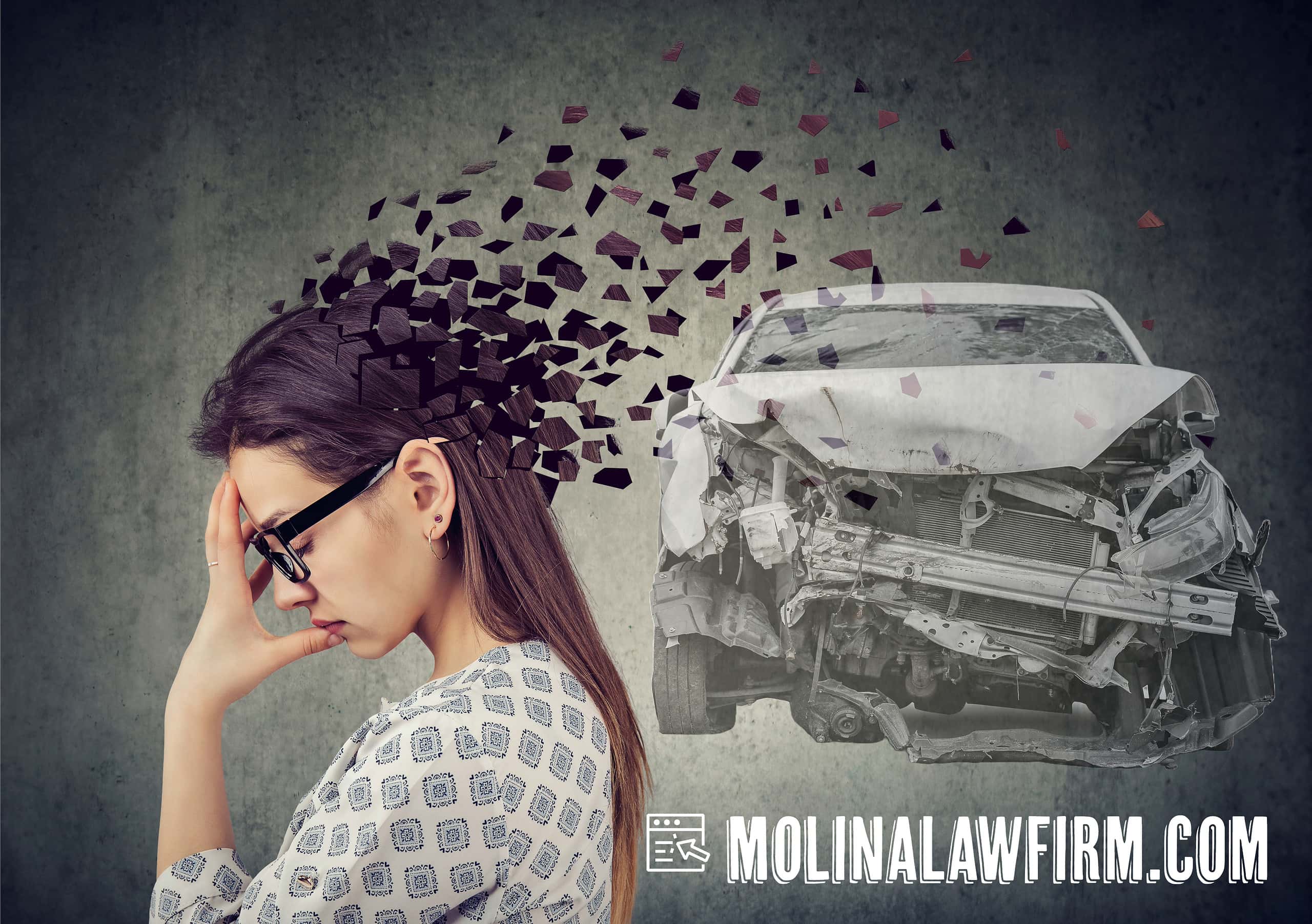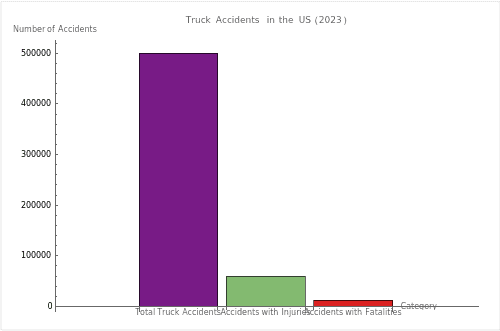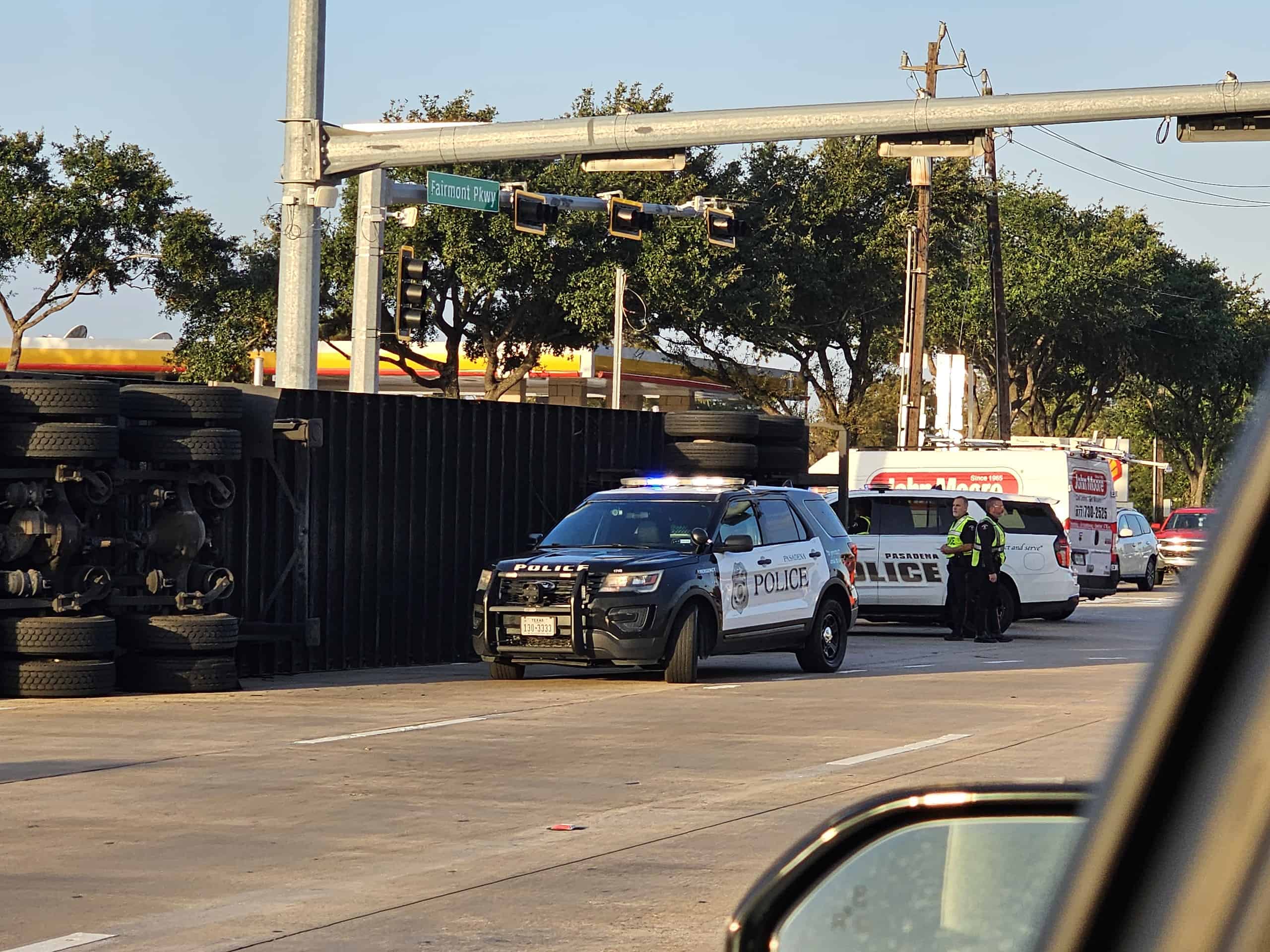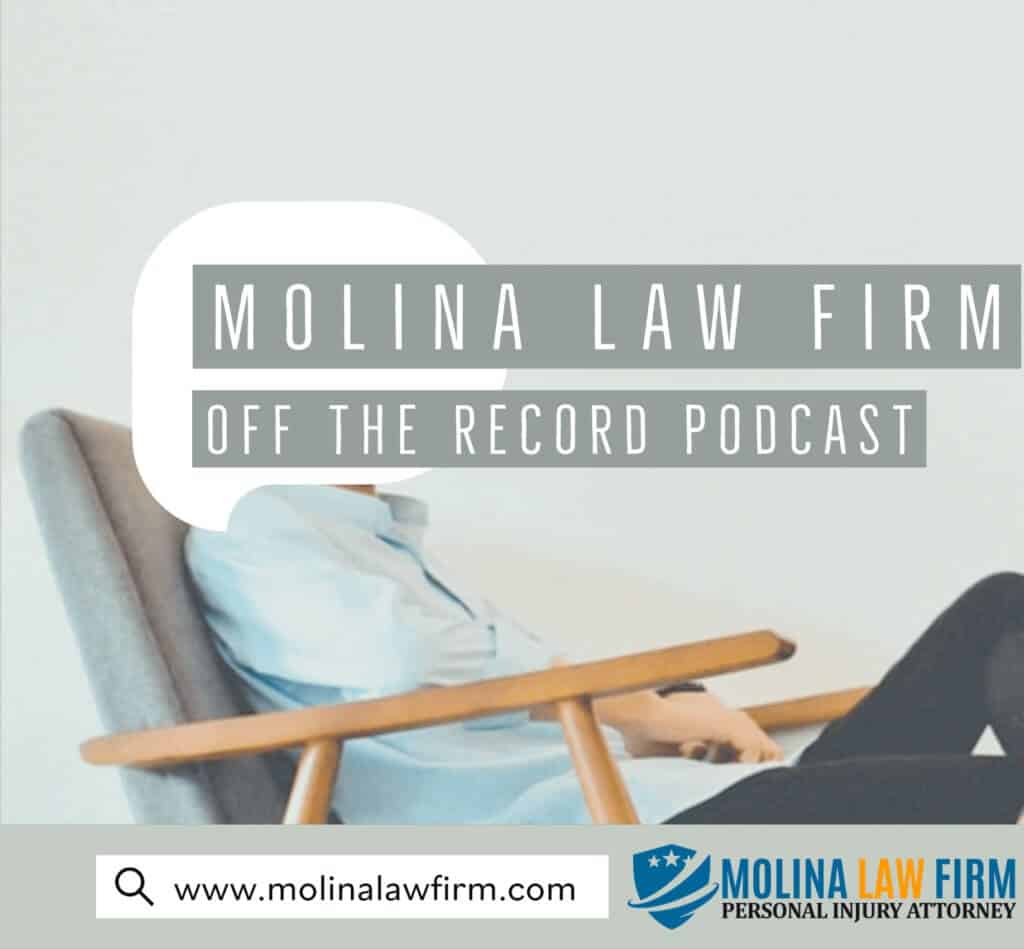
Understanding the Psychological Impact of a Truck Accident
Truck accidents are among the most catastrophic road incidents, often leaving a trail of physical destruction in their wake. However, the psychological impact of these accidents can be just as profound, yet it often goes unnoticed. In the United States alone, thousands of truck accidents occur annually, leading to a significant number of individuals grappling with mental and emotional trauma. Victims and their families frequently endure profound psychological and emotional consequences that can last for years.
This article aims to shed light on the often-overlooked psychological effects of truck accidents. From the immediate shock and confusion to long-term disorders like PTSD and depression, understanding these impacts is crucial for victims and their support networks.
Statistics underscore the importance of this issue:
- According to the Federal Motor Carrier Safety Administration (FMCSA), there were thousands of police-reported crashes involving large trucks in 2023.

This bar graph helps grasp the magnitude of truck accidents and underscores the importance of addressing the psychological aftermath of such incidents.
- Research indicates that a significant percentage of truck accident survivors experience some form of psychological distress.
By comprehending the full scope of these psychological effects, we can better support those affected and advocate for comprehensive recovery strategies that address both the physical and mental aftermath of such traumatic events.
The Immediate Aftermath of a Truck Accident
The moments following a truck accident are often characterized by a whirlwind of emotions and reactions. The psychological impact of a truck accident is often overlooked. Victims commonly experience a range of immediate psychological responses:
Shock and Disbelief: The sudden and unexpected nature of truck accidents can leave victims in a state of shock. This may manifest as numbness, disorientation, or an inability to process what has happened.
Understanding Shock in the Wake of a Truck Accident
- Physical and Emotional Symptoms: Shock can manifest both physically and emotionally. Physically, individuals might experience trembling, rapid heartbeat, and a sense of numbness or detachment. Emotionally, there may be feelings of unreality, as if the event is happening to someone else or is like a bad dream.
- Duration and Intensity: The duration and intensity of shock can vary greatly from person to person. For some, it may last a few minutes or hours, while for others, it might persist for days. The severity of the accident often influences the extent of the shock.
The Role of Disbelief
- A Protective Mechanism: Disbelief serves as a protective mechanism, cushioning the immediate emotional blow of the accident. It allows the mind time to gradually process the reality of what has happened.
- Coping with Overwhelming Emotions: By initially denying the full impact of the event, the mind can avoid becoming overwhelmed. This denial is often temporary and gives way to a more accurate understanding of the situation as the individual begins to process the event.
Moving Beyond Shock and Disbelief
- Acknowledgment and Acceptance: As the initial shock wears off, it’s important for individuals to start acknowledging and accepting what has happened. This is a crucial step in the healing process.
- Seeking Support: Talking to friends, family, or a mental health professional can be helpful in moving past the shock and disbelief. Expressing feelings and discussing the event can aid in processing the trauma.
- Self-Care: Engaging in self-care activities, such as rest, healthy eating, and light physical activity, can also help the body and mind recover from the initial shock.
Shock and disbelief are natural and common reactions to the traumatic experience of a truck accident. Recognizing these feelings as part of the body’s response to extreme stress can help individuals understand their experiences and begin the journey toward recovery. It’s important to seek support and take steps towards healing, as lingering shock and disbelief can impede the recovery process.
2. Denial: In some cases, victims may find it hard to accept the reality of the incident, leading to denial. This is a natural defense mechanism to initially shield oneself from the psychological impact of a truck accident.
Understanding Denial in Trauma Response
- Coping Strategy: Denial is a common coping strategy in the face of traumatic events. It involves refusing to accept the reality of what has happened, which can temporarily shield an individual from the pain and distress of the situation.
- Manifestations of Denial: This denial can take various forms, from minimizing the severity of the accident to completely blocking out the memory of the event. Some individuals may act as if the accident never occurred or downplay their injuries and emotional distress.
The Protective Function of Denial
- Emotional Buffer: In the short term, denial serves as an emotional buffer. It gives the individual time to adjust to the shock and trauma at their own pace, preventing them from becoming overwhelmed.
- Gradual Acceptance: Denial can be part of a gradual process of coming to terms with the reality of the situation. It allows the mind to process the trauma in stages, which can be less distressing than facing it all at once.
Challenges and Risks of Prolonged Denial
- Delayed Healing: While denial can be beneficial in the short term, prolonged denial can impede the healing process. It can prevent individuals from seeking necessary medical and psychological help.
- Impact on Recovery: Staying in a state of denial can lead to unresolved trauma, which might manifest in other psychological issues like anxiety, depression, or PTSD.
Moving Beyond Denial
- Acknowledgment: The first step in moving beyond denial is acknowledging it. Recognizing that denial is a natural part of the trauma response can be empowering.
- Seeking Support: Professional counseling can be particularly effective in helping individuals move past denial. Therapists can provide a safe space to explore and accept the reality of the trauma.
- Expressive Outlets: Engaging in expressive activities like writing, art, or talking about the experience can help break through the barriers of denial.
- Building a Support Network: Connecting with others who have gone through similar experiences, such as support groups, can also be beneficial. It helps in realizing that one is not alone in their feelings and reactions.
Denial is a common and natural response to the trauma of a truck accident. It serves as a temporary coping mechanism, allowing individuals to process the event at their own pace. However, it’s important to recognize when denial is hindering recovery and to take steps towards acceptance and healing. With the right support and strategies, individuals can move beyond denial and embark on a path towards emotional recovery.
3. Confusion and Uncertainty: The chaos that ensues after a truck accident can lead to confusion. Victims might struggle with questions about their safety, the safety of others, and what steps to take next.
Understanding Confusion in the Trauma Response
- Disorientation: Confusion often manifests as a sense of disorientation. Victims might struggle to piece together the events of the accident or find it difficult to comprehend the severity of what has happened.
- Overwhelm: The sheer volume of decisions and information that need to be processed post-accident can be overwhelming, contributing to a state of confusion. This includes dealing with medical, legal, and insurance matters.
The Impact of Uncertainty
- Future Concerns: Uncertainty often revolves around concerns for the future. Victims might worry about their physical recovery, financial implications, or the potential for long-term psychological effects.
- Seeking Answers: The need for clear information and answers can be intense. Uncertainty can lead to a relentless search for details about the accident, medical prognoses, and legal outcomes.
Coping with Confusion and Uncertainty
- Information Gathering: One way to combat confusion is through organized information gathering. Keeping track of medical appointments, legal advice, and insurance details can help bring some clarity.
- Professional Guidance: Seeking professional advice from doctors, lawyers, and mental health professionals can provide authoritative information and reduce uncertainty.
- Mindfulness and Grounding Techniques: Practices such as mindfulness can help individuals stay present and reduce feelings of being overwhelmed. Grounding techniques can also be beneficial in managing moments of intense confusion.
Building a Support System
- Family and Friends: Leaning on a support system of family and friends can provide emotional stability and practical help in navigating post-accident challenges.
- Support Groups: Joining support groups with others who have experienced similar traumas can provide a sense of community and understanding, helping to alleviate feelings of confusion and isolation.
Confusion and uncertainty are natural responses to the chaos and trauma of a truck accident. While these feelings can be overwhelming, there are strategies to manage them effectively. Organizing information, seeking professional guidance, and building a strong support network are key steps in overcoming these challenges. By addressing confusion and uncertainty head-on, victims can begin to regain control and move forward on their path to recovery.
These immediate reactions are normal but can evolve into more persistent psychological issues if not addressed. Understanding these initial responses is the first step in acknowledging and managing the longer-term psychological impact of truck accidents.
Long-Term Psychological Effects
The long-term psychological impact of a truck accident can be profound and life-altering. It’s crucial to recognize and address these issues:
Post-Traumatic Stress Disorder (PTSD)
- Definition: PTSD is a mental health condition triggered by experiencing or witnessing a traumatic event.
- Symptoms: These can include flashbacks, nightmares, severe anxiety, and uncontrollable thoughts about the accident.
- Prevalence: A significant number of truck accident survivors develop PTSD, impacting their daily functioning and quality of life.
Anxiety Disorders
- Generalized Anxiety: Persistent, excessive worry about various aspects of life post-accident.
- Panic Attacks: Sudden periods of intense fear that may include palpitations, sweating, and feelings of impending doom.
Depression
- Symptoms: Persistent sadness, loss of interest in activities, feelings of hopelessness, and changes in appetite or sleep.
- Impact: Depression can affect one’s ability to work, engage in social activities, and perform daily tasks.
Phobias
- Specific Phobia: An irrational fear of driving or being on the road, often leading to avoidance behaviors.
- Impact: This can significantly limit a person’s independence and mobility.
Recognizing these conditions is the first step towards healing. It’s important for victims and their loved ones to be aware of these potential psychological impacts and seek professional help when needed.
Legal Assistance: Navigating the Aftermath of a Truck Accident
In the wake of a truck accident, victims often find themselves facing not only physical and emotional challenges but also complex legal and financial issues. This is where the expertise of a truck accident lawyer becomes invaluable.
The Role of a Truck Accident Lawyer
- Understanding Your Rights: Attorney Rick Molina, a lawyer specializing in Houston truck accidents, can provide crucial insights into your legal rights and the options available to you. They can help you understand the nuances of truck accident law and how it applies to your specific case.
- Navigating Legal Complexities: Truck accident cases can involve multiple parties, including trucking companies, insurance providers, and other entities. A skilled lawyer can navigate these complexities, ensuring that your case is handled effectively.
- Negotiating with Insurance Companies: Dealing with insurance claims can be daunting. A lawyer can take on the task of negotiating with insurance companies to ensure that you receive the compensation you deserve for both physical and psychological damages.
- Seeking Fair Compensation: Whether it’s medical expenses, lost wages, or compensation for emotional trauma, a lawyer will fight to secure the most favorable outcome for you. They understand the long-term impact of truck accidents and work to ensure that all aspects of your recovery are considered in the settlement.
Why Legal Representation is Crucial
- Expertise and Experience: Lawyers with experience in truck accidents bring a wealth of knowledge and resources to your case. They are equipped to handle the unique challenges that these cases present.
- Reducing Stress: By handling the legal aspects of your case, a lawyer can significantly reduce the stress and burden on you and your family, allowing you to focus on recovery.
- Maximizing Your Recovery: A lawyer’s goal is to maximize your recovery in every sense – physically, emotionally, and financially. They advocate for your complete well-being, ensuring that all facets of the accident’s impact are addressed.
We are here to help!
The psychological impact of a truck accident can be profound and long-lasting. While coping with the emotional aftermath is a personal journey, having a knowledgeable and compassionate legal ally can make all the difference. A Houston truck accident lawyer not only provides legal guidance but also stands as a pillar of support, helping you navigate the challenging path towards recovery and justice.
Want More Truck Accident Information?
Related Articles:

Houston Truck Accidents Caused By Poor Maintenance
Many trucking companies overlook the importance of regular inspections and maintenance for their fleet of vehicles. Given the substantial costs associated with parts and labor,

Legal Consequences of a Truck Accident
Legal Consequences of a Truck Accident can be serious, and it’s crucial to understand the potential liabilities and compensation options. Whether you’re a driver, passenger, or

Truck Accident Statistics: A Deep Dive into the Numbers
Truck accidents are a road hazard for all drivers. Truck accident statistics demonstrate the extent of the danger. Table of Contents Key Takeaways Truck accidents


